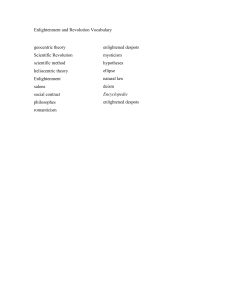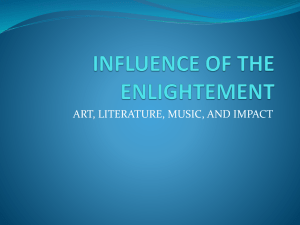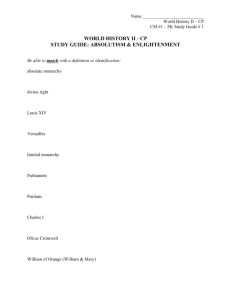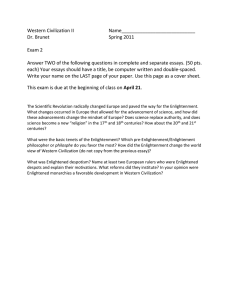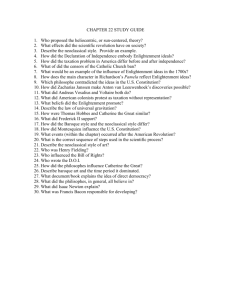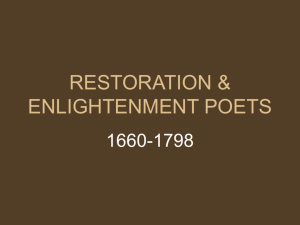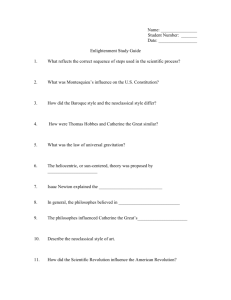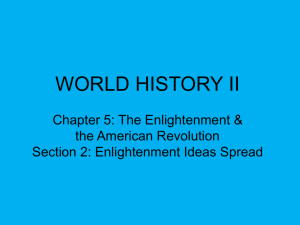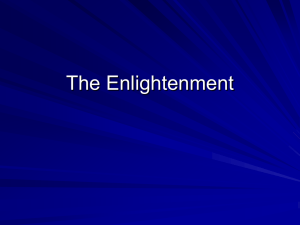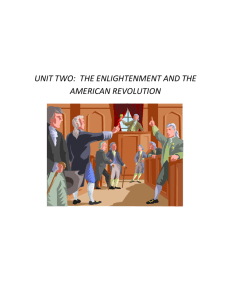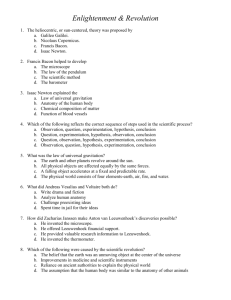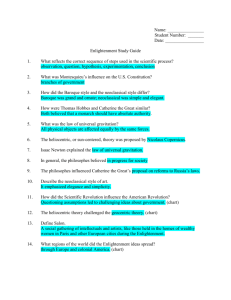The Enlightenment Spreads
advertisement
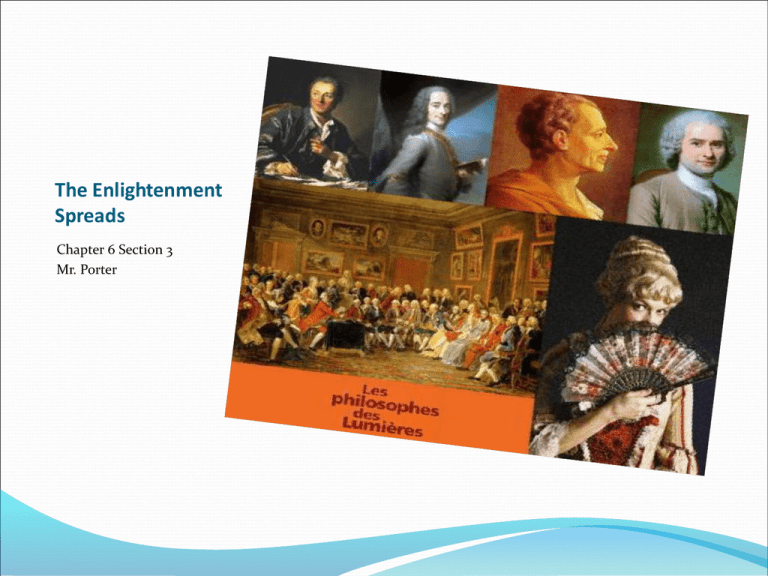
The Enlightenment Spreads Chapter 6 Section 3 Mr. Porter Neoclassical Style Pulteney Bridge Changes in architecture and paintings. Baroque- which uses classical Greek and Roman structure of influence. As these changes occurred with this new artistic style it became known as neoclassical (“new classical”). Paris in 1700’s Cultural and Intellectual capital of Europe. The brightest minds would come to Paris. Wealthy women of Paris would hold social gatherings in salons were these intellects in art, science, writers and philosophers would discuss their ideas. Salon Salons Continued Marie-Therese Geoffrin leading hostesses of this period. She help finance Denis Diderot project of a group of books in which leading scholars of Europe would post articles and essays in it. Called it the Encyclopedia With the encyclopedia, the ideas of the enlightenment began to spread throughout Europe. These ideas angered the French Government and the Catholic Church. Mozart & Beethoven Music & Literature Three Austrian Compossers Franz Joseph Haydn, Wolfgang Amadeus Mozart and Ludwig van Beethoven. New style of writing began to appear with fictional novels. Very popular with the middle class who enjoyed entertaining stories written in everyday language. Samuel Richardson novel Pamela is seen as the first true English novel. Enlightenment & Monarchy Many philosophes tried to convince monarchs to respect the people’s rights. Monarch’s that took on the ideas of the Enlightenment were known as enlightened despots. Although these monarch’s supported these ideas, they had no plans on giving up their rule. Three rulers that were the leaders of the enlightened despots. Frederick the Great King of Prussia (1740-1786) Goal to strengthen the country Granted Religious Freedom Reduced Censorship Improved Education Reformed Justice System He called himself “the first servant of the state” Joseph II Ruler of Austria (1780-1790) Introduced legal reforms Introduced freedom of the press Supported freedom of worship Abolished serfdom Peasants to be paid cash for their labor Nobles resisted this change Catherine the Great Ruled Russia (1762-1796) She admired Voltaire Pushed for Religious freedom Abolish torture & capital punishment Actually she did little for the peasants of Russia Russian peasants would revolt in 1773. Catherine the Great After crushing the rebellion, she realized she needed nobles to support the throne. She made a focus to expand her empire Northern shore of the Black Sea Expanded into parts of Poland
